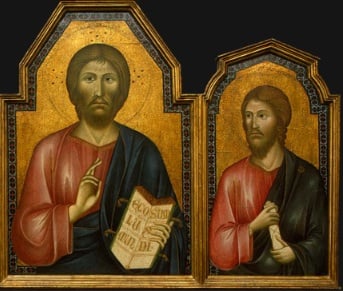 James, the brother of Jesus, is no promiser of happy days. Notice what he says in James 1:6-8:
James, the brother of Jesus, is no promiser of happy days. Notice what he says in James 1:6-8:
6 But when he asks, he must believe and not doubt, because he who doubts is like a wave of the sea, blown and tossed by the wind. 7 That man should not think he will receive anything from the Lord; 8 he is a double-minded man, unstable in all he does.
I’m not so sure we should run ahead of James and say that if we lack wisdom it is not because didn’t have enough faith, so we should start mustering up more and more faith. James’ approach here is simpler and more either/or.
For James, you either approach God as good in faith or you approach God in a faith mixed with doubt about God himself. This sounds a bit like Hebrews 11’s opening appeal to trust in God — to trust God you gotta believe God exists.
To trust God to grant wisdom in the midst of strife you gotta believe God is good. Notice this isn’t the intellectual conundrum that ponders, often in the middle of an ivory tower or from the comfort of a cushioned chair or over a latte with a friend, but the genuine reality of the poor oppressed (and tradition tells us James was put to death by enemies of the gospel) who cry out to God and bank on God’s goodness in the midst of suffering.
And neither do we need to minimize the reality of theodicy: the difficulty of explaining God as good in a world that is rife, at times, with injustices. But that is not what James is addressing.
He says the poor can turn to God, who is good, and ask for wisdom. He says they can turn to God in faith. And he says God will grant them wisdom.
He summons the messianists to the courage that is required to believe, in the midst of suffering, that God is good and that God grant wisdom and that God will bring justice — someday.
